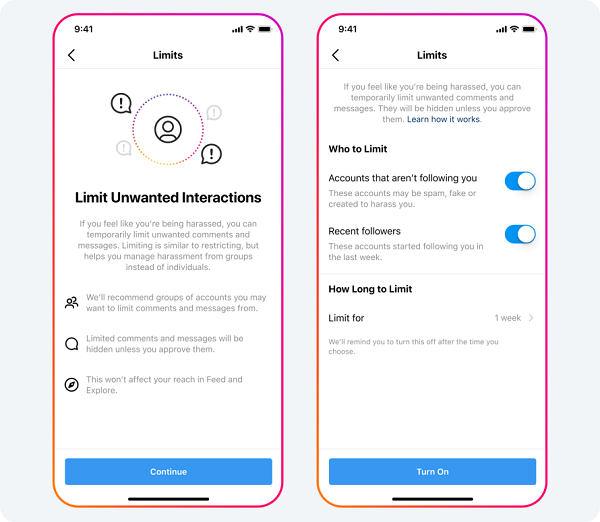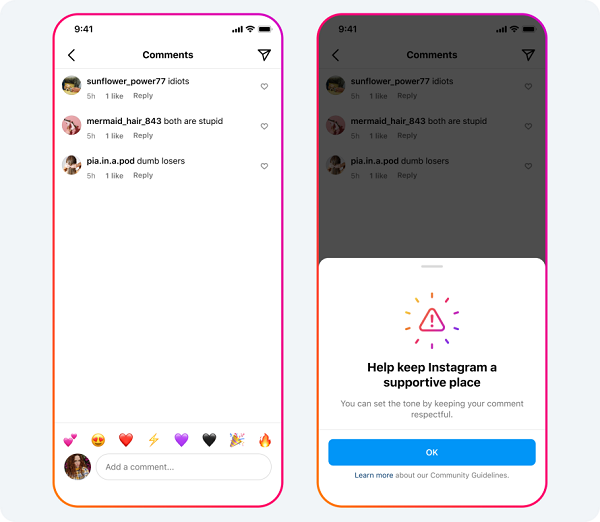With the 2022 World Cup set to kick-off next week, Meta’s looking to get ahead of potential misuse, by outlining the various tools that it has in place to protect players from attacks in its apps, while it’s also issued a warning to those using its platforms that abusive behavior will not be tolerated.
This comes after England’s loss in the Euro 2020 final, which resulted in several English players being targeted, largely via Instagram DMs, with racial abuse.
The incident sparked international condemnation, and prompted Meta, and other platforms, to implement a range of new tools to offer more protection for users from DM attacks.
Now, Meta’s looking to reiterate these tools to help players, and fans, as we head into the World Cup frenzy.
As per Meta:
“We have clear rules against bullying, violent threats and hate speech — and we don’t want it on our apps. As well as responding to reports from our community, outside of private messages we also use technology to proactively look for content that might break these rules. Where our technology thinks a piece of content may be violating it will take action, whether that’s sending it to our teams for review or – if it’s really confident – deleting it automatically.”
Meta says that this type of proactive enforcement has had a big impact, with more than 17 million examples of hate speech removed from its apps between April and June this year, and more than 90% of that taken down before anybody reported it.
To further assist, Meta has outlined its updated range of IG protection and control tools, including the capacity to turn off DM requests completely, and choose who can/can’t comment on your posts.
There’s also Instagram’s ‘Hidden Words’ option, which enables users to filter out comments, Story replies and DM requests that contain potentially offensive words, phrases and emojis (moving them to a separate folder).
“Since launching Hidden Words last year, more than one in five people with more than 10,000 followers have turned it on. We’re also testing turning it on by default for people with creator accounts, which includes many footballers playing in the World Cup.”

Instagram also has its new ‘Limits’ feature, which hides comments and DM requests from people who don’t follow you or who only followed you recently.
“Limits is particularly useful for public figures who experience sudden spikes of comments and DMs – after a football game, for example – as our research shows that most negativity towards them comes from non-followers or recent followers. When we detect that someone may be experiencing a rush of comments or DM requests, we’ll prompt them to turn on Limits.”

Finally, Instagram also has comment detection, which will prompt users that are trying to post a comment that might be offensive.

“In a given week, people edit or delete their comment 50% of the time after seeing these warnings. We also recently introduced new nudges that encourage people to pause and rethink before replying to a potentially offensive comment. These nudges are live now for people whose apps are set to English, Portuguese, Spanish, French, Chinese or Arabic.”
In combination, these features should help Instagram users avoid the same types of abuse that some have experienced in the past, while also limiting overall negative behavior, and improving the user experience.
These are important steps, and it’s also crucially important that Instagram, and all social apps, step up and note unacceptable behavior, especially in high-profile instances, where young sports stars can easily be overwhelmed by negativity.
The World Cup is an extremely passionate event, which can bring out the best and worst – and as such, it’s good to see Meta taking proactive steps to warn users on its rules and systems.



